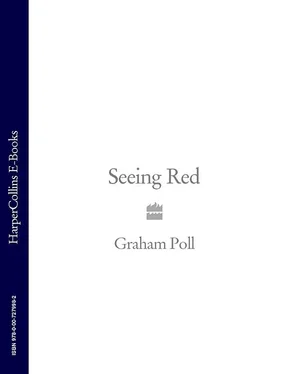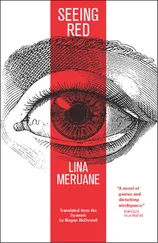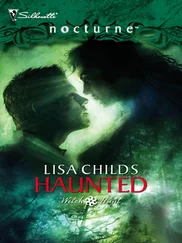My good friend in those days was Alan Crompton, who was one of those people who are good at every single sport. He was great at rugby, an outstanding cricketer and a very decent footballer – really annoying. In one old-time musical he and I dressed up as soldiers and sang a duet about being comrades. I am pleased to say, all these years later, that Crompo is still a comrade.
My schooldays were happy days because of those extracurricular activities. But I wasted my academic abilities. Thomas Alleynes, a boys-only school, changed from being a selective grammar to a comprehensive the year I started, yet it maintained grammar school attitudes. There were six academic ‘streams’ in each year. I was near the bottom of the top stream, but the boys I most aspired to befriend and imitate – the Jack the Lads who were quite bright but also liked a laugh – were in the second stream. My desire at school was to make the other kids smile. I used to mimic the teachers and spent more time kicked out of classes than inside. On one occasion, the physics teacher sent me out before I’d gone in, to save time later.
When I decided to leave school just before my sixteenth birthday, my parents were very disappointed, especially my dad. He would have given anything for the opportunity to go into further or higher education, but none of his three daughters chose to do so and now his fourth and last child was spurning that chance as well. He told me I could only leave school if I had a job. So I bought a three-piece, brown, pin-striped suit. Crompo bought a similar outfit in charcoal grey. The comrades were suited. He had an interview with Pearl Assurance; I had one at Prudential Insurance. We both got the jobs. The comrades were sorted.
Just over a year later, I began refereeing and so my two careers, in commerce and in football, had begun. Mum and Dad, I know, became proud of my achievements in both. You only begin to understand your own parents fully – their hopes and fears, their love and their pride – when you have children of your own, and so it was when I had a heart-filling moment involving my daughter Gemma that I appreciated how my mum and dad felt about me.
At the first parent-teacher meeting at Gemma’s school, the teacher said, ‘This is the most difficult meeting of this type I have ever had.’ I glanced at my wife, Julia, wondering what was to follow. The teacher continued, ‘Gemma is wonderful; a lovely, lovely child who is a pleasure to have in the classroom.’
Nobody has ever called me a lovely, lovely referee but, as I walked home from Gemma’s school, I had a warm feeling of satisfaction knowing that my career in football must have meant a lot to those close to me. My mum, bless her, says there have been so many proud moments that she cannot pick just one, but when pressed, she admits it was the FA Cup Final – the last one at the old Wembley before the bulldozers moved in, and the one where I had to sneak out of the back door of my house to avoid a photographer hiding in the bushes.
CHAPTER NINE
Studying the TV listings for Cup Final day in the year 2000, I remarked to Julia that television coverage was starting at 1 pm. ‘That’s ridiculous,’ I said.
She replied, ‘Yeah, two whole hours before kick-off.’
I meant, of course, it was ridiculous that the build-up was so brief.
As a boy, FA Cup Final day was spent camped in front of the television – for the entire day. Mum prepared the bread rolls the night before so that, once the TV build-up began at about 9 am, we could settle down and not be disturbed. We scoffed the rolls as we devoured the unbroken hours of football programmes. In those days – I sound like an old fart, I know – the FA Cup Final was the only live football coverage and the television companies made the most of it. So did we. We sat there all day, transfixed by Cup Final It’s a Knockout , then The Road to Wembley , then Meet the Players’ Families and so on. Then came the match. And that evening we’d watch the highlights again on Match of the Day .
By the year 2000, there was live football on television almost every day and so a lot less fuss was made about the FA Cup Final. My many critics will probably construe my disappointment about that as a desire to be in the limelight longer, because 2000 was the year I refereed the FA Cup Final, between Chelsea and Aston Villa.
I have to admit that I played my part, not at all begrudgingly, in the pre-match publicity. I let Sky TV film me having my hair cut in Berkhamsted. The BBC filmed me playing Mousetrap with my daughters. The Bucks Herald came and took a picture of me standing in my back garden, brandishing a red card. It seemed a bit corny, but I can’t pretend I minded too much. I had a different response for a reporter and photographer from the News of the World , however.
On the Saturday before the Final, I was watching a video with the kids. Harry, my son, was not quite three months old. My daughters, Gemma and Josie, were six and four. At 9 am precisely, the reporter rang the front door bell. Turning up unannounced like that is called ‘doorstepping’, apparently. But the photographer wasn’t on my doorstep. He was hiding just a little way up the road in some bushes with a long lens trained on my front door.
The reporter said, ‘We are publishing a story tomorrow regarding a former allegiance of yours.’ I had no idea what he meant. I wondered if it was about a former relationship with someone, but I could not think of anything that would be a story. Then he said, ‘We have it on good authority that you used to be a Chelsea supporter.’
Their intention was to print a story saying, ‘Cup Final ref is Chelsea fan’. It would create such a furore that I would be taken off the game. I replied, ‘You are trespassing on my land. If you don’t leave, I’ll call the police.’
As I closed the door, he shouted, ‘I’ll wait. It would pay you to speak to us.’ Clive, our postman, did call the police. He spotted these two characters sitting in our street, knew they were not locals, and telephoned the police, who said they could not do anything.
Meanwhile, indoors, I was piecing events together in my mind. The first clue was that, Nick Whitehead, who had been a friend of Mum and Dad when we all worked at Kodak, had called me three times during the week, out of the blue. He left two messages for me and then, when he managed to talk to me, wished me luck and made a couple of references to my having been a Chelsea fan. I thought he was trying to make a joke. I certainly did not think he could be serious, because it did not have a grain of truth and I assumed that he knew it was not true.
The truth, incidentally, is that when I was young I used to support a local boys’ team in Stevenage called Gonville Rovers, and I have always supported England. As far as professional clubs are concerned, I am an ex-Leeds fan and a lapsed Queens Park Rangers supporter.
The first match that captured my imagination as a boy was on one of those lovely days watching the Cup Final. It was in 1970, when Leeds played Chelsea at Wembley. And, as young boys do, I decided that day that I was a Leeds supporter. I held on to that idea for about three years, and even had a pair of Leeds United sock garters. They had special, numbered tags. Mine had the number seven on the tags, which I thought might help me whack the ball at 70 mph, like Leeds number 7 Peter Lorimer.
But when Leeds stopped winning, I stopped supporting them, as young boys do. My dad was a QPR fan, so I declared myself a QPR supporter as well, although I seldom went to games. I was too busy watching my dad referee or cheering on Gonville Rovers. The professional team I saw the most was Arsenal, because I had a friend who was a Gunners’ fan and we could get to Highbury quite easily by public transport from Stevenage. I went there quite regularly for about three seasons. But I was never an Arsenal supporter, because they were shockingly bad in those days.
Читать дальше












